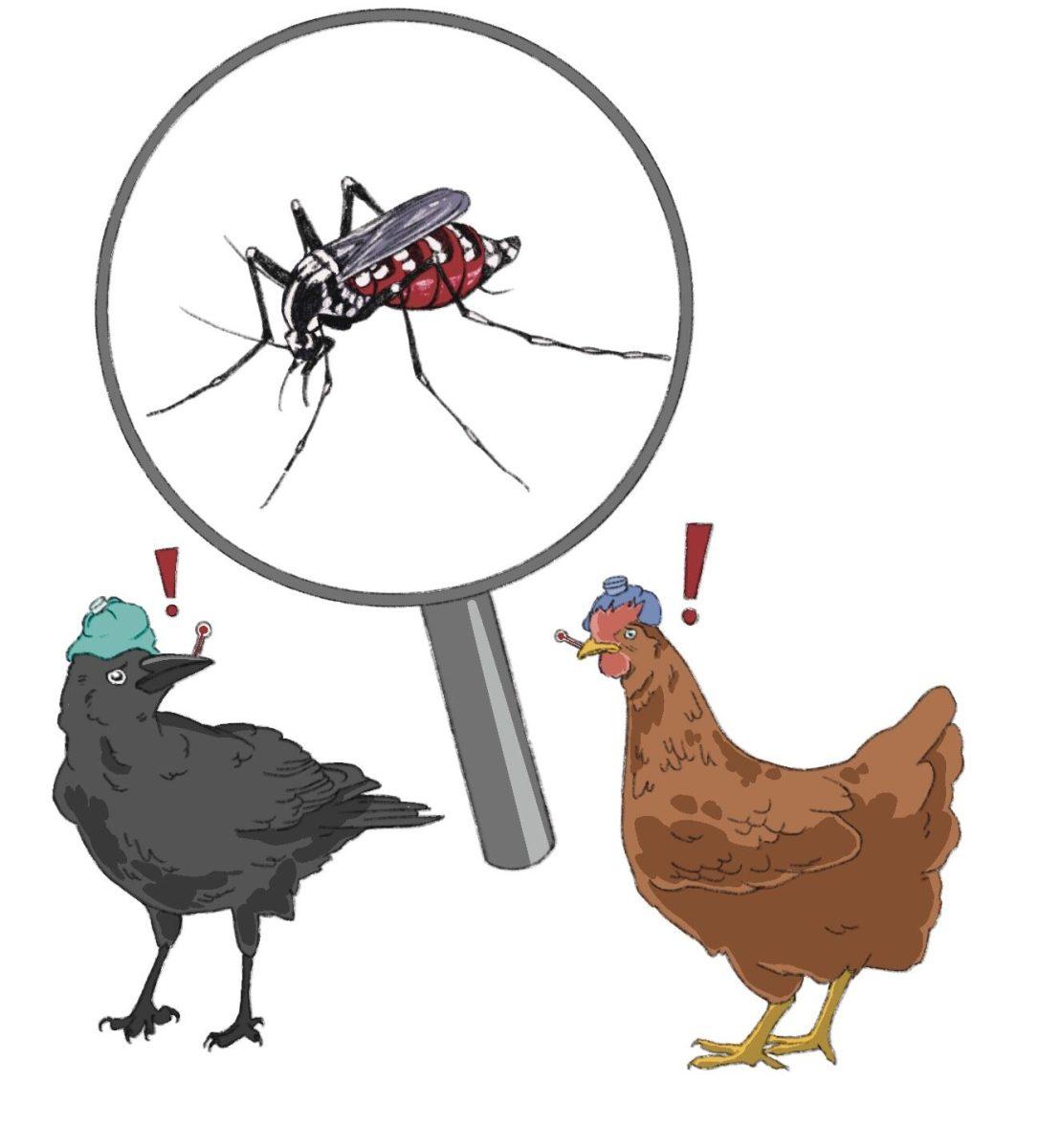North Carolina is experiencing a spike in West Nile virus cases this year, with 16 reported infections, including three in Wake County. This marks an increase from the typical zero to 10 cases seen annually in the state since 2012.
Michael Reiskind, a professor of entomology at NC State, said West Nile virus is a disease related to yellow fever and dengue fever that is transmitted by mosquitoes, primarily affecting birds but occasionally infecting humans. The virus can cause severe neurological damage in some cases, leading to encephalitis or brain swelling.
“When it infects humans, it can do some pretty serious damage, mostly by going to your nervous system,” Reiskind said.
The virus is transmitted between birds through mosquito bites, with humans becoming infected when a mosquito feeds on an infected bird and then bites a person. Reiskind said this transmission makes the virus challenging to predict and control.
Clyde Sorensen, a distinguished alumni association undergraduate professor of entomology, said while most people infected with West Nile virus show no symptoms, it can cause severe illness in some individuals.
“The vast majority of people who contract that virus show no symptoms, but it does have the potential to cause severe illness in some folks, and sometimes that illness can be very grievous indeed,” Sorensen said.
Reiskind said the virus has a case fatality rate of about 4%, which he said was relatively high for infectious diseases. The most concerning complication is encephalitis or swelling of the brain, which can lead to long-term health issues.
“When your brain gets damaged, it can be a long road back,” Reiskind said. “Even though there aren’t that many deaths from West Nile, it’s still a significant risk, especially for the elderly.”
Sorenson said the disease is typically seasonal in North Carolina.
“Mosquito-vectored diseases tend to be more common during warmer parts of the year, partly because people are out more and mosquitoes are often more abundant,” Sorenson said.
However, Sorenson said North Carolina’s subtropical climate means mosquitoes can be active year-round.
“In North Carolina, there’s probably not a month in the year where you might not be bit by a mosquito,” Sorenson said.
Sorenson said although the risk of contracting West Nile virus from a single mosquito bite in North Carolina is low, infection is not impossible.
“It’s a numbers game,” Sorenson said. “The more mosquito bites you get, the more your odds go up.”
Sorenson said the primary mosquito species of concern for West Nile virus transmission in North Carolina are Culex mosquitoes, which breed in tree holes, and Aedes mosquitoes, particularly the Asian tiger mosquito. These species are common in urban and suburban areas which increases the risk of human exposure.
While the current number of cases is higher than usual for North Carolina, Reiskind said the state has been relatively fortunate compared to other regions.
“North Carolina has been actually really lucky,” Reiskind said. “Many other places in the country have had worse outbreaks.”
Both experts said there are crucial preventative measures to be taken to avoid West Nile and other mosquito-borne illnesses. Sorensen said he advises anyone going to an area where they know lots of mosquitoes could be present to wear long sleeves, long pants and repellents using DEET.
“You have to balance the risk of using the repellent against the risk of possibly getting sick,” Sorenson said. “In my equations, using the repellent always wins.”












